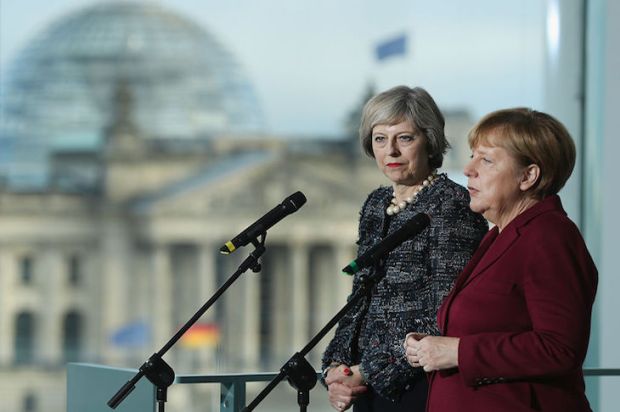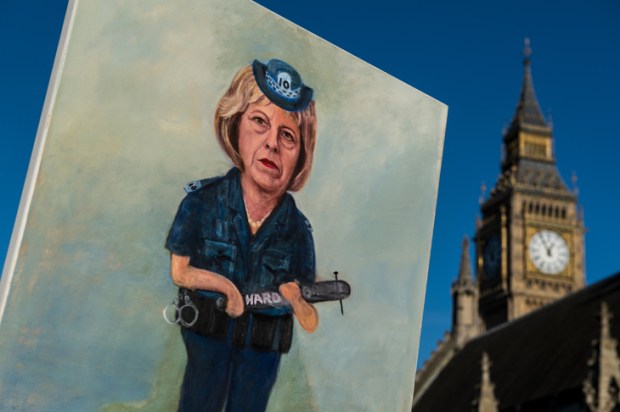Listen
The House of Commons is off for the summer. But few MPs and ministers expect to make it through to September without the House being recalled because of the grim international situation. This has been the worst year for the West in foreign policy terms since 1979. A terrorist enclave has been established in the heart of the Middle East, Iraq has confirmed its status as an Iranian vassal state, Russia has annexed Crimea with minimal consequences and the West has not even been able to come up with a robust response to Moscow-backed rebels shooting down a civilian airliner in eastern Ukraine.
There will, though, be no desire in No. 10 to make MPs return early. Everyone there remembers how they were summoned last summer — and promptly defeated the government. David Cameron wanted their backing for strikes on Syria to punish the Assad regime for its use of chemical weapons in the civil war. Barack Obama then felt obliged to consult Congress before taking action. Ultimately, the Commons vote resulted in no US-led air strikes.
Whatever one thinks of Parliament’s decision, one can’t dispute that it was significant. MPs had demonstrated that even on matters of war and peace, the traditional preserves of the executive, they were prepared to stand athwart the Prime Minister. The Commons had shown that, contrary to popular belief, it doesn’t just do what the government tells it to.
The vote might have altered the course of western foreign policy but it doesn’t appear to have changed perceptions of Parliament. It is still a much-derided place and MPs are deeply unsure of the worth of what they are doing. ‘This is the most independent-minded Parliament for a century and yet we are still despised,’ laments one senior MP.
One of the worst indictments of the Commons is how many of those who announced that they were quitting as ministers at the reshuffle simultaneously declared that they would stand down from the Commons at the next election. It is as if they saw little point in being an MP if they were not a minister.
Most of those leaving are not doing so because they are past retirement age. Sir George Young might be 73, but William Hague, Andrew Lansley and David Willetts are only in their fifties and Greg Barker is a mere 48. When they go, they will take expertise and experience that the Commons desperately needs to do its job properly. Former ministers play a particular role in the Commons’ ability to scrutinise what the government is doing. On Budget day in the Gordon Brown era, the most penetrating speech would invariably come from Ken Clarke. Clarke, as a former Chancellor, knew of what he spoke but as a backbencher was free of the constraints of partisan point-scoring. Rather magnificently, the 74-year-old plans to stand at the next election and his contribution after this year’s autumn statement promises to be particularly interesting.
It is a real pity that Willetts will not be available to play the Ken Clarke role on universities and pensions policy, two of his specialist areas. When the 2015 government, as it almost certainly will, decides to change the fees structures for students, the debate will be far poorer for not hearing Willetts’s informed analysis of what it all means.
Cameron will not be overly concerned about former ministers leaving the Commons. In conversation with senior Conservative parliamentarians, he has been clear that he thinks that MPs shouldn’t hang around forever. Cameron, despite his traditional upbringing and education, has a Blairite attitude to institutions and constitutional conventions. However, one can’t imagine even Blair expressing the blithe contempt for the second chamber that Cameron did when he failed to make the new leader of the House of Lords a full member of the Cabinet.
It is easy to see why the idea of shorter Commons careers should appeal to a party leader. If only those who have made it to the top stay on, there’ll be no experienced figures to cause trouble. As one independent-minded backbencher explains, ‘if you’re only coming here for a ten- to 15-year stint, you’re going to put your head down and see if you can make it to ministerial rank as quickly as possible’. There is also a sense that to be successful one needs to get into the Commons at a younger age. It hasn’t been lost on aspirant politicians that five of the seven new faces around the Cabinet table entered Parliament before they had turned 40.
This emphasis on youth precludes people having had a long career outside of politics. One doesn’t have to agree with the former minister who says that ‘we have the worst of all worlds — people who aspire only to be managers but can’t manage’ to think that it is unfortunate that the ambitious feel they have to stand for office before they have had time to reach the top of another profession.
Public cynicism in Britain is high. Only three per cent of Britons report ever having been asked or expected to pay a bribe for public services, the lowest level in the EU. But 69 per cent think that corruption is a major problem: this is the legacy of the MPs’ expenses scandal. For MPs, running into this headwind of scepticism is debilitating.
There are some minor measures that could be taken to improve the work of Parliament. Reducing the number of MPs radically would mean they couldn’t be expected to be social workers. One of those promoted last week says he initially tried to direct constituents seeking assistance to the appropriate place. After a few months, his association chairman warned him to stop doing this because it was making people think he was lazy. He now spends a considerable amount of his time on things that should be the responsibility of councillors. If constituencies were half as big again MPs couldn’t be expected to do this. Also, a more modulated approach to outside interests might encourage more former ministers to stay after losing office.
But the situation is now so serious that it might be only a big-bang reform that can reinvigorate Parliament. The time might have come to consider a full separation of powers, removing the executive from the legislature and giving Parliament its own distinct identity and role.
Got something to add? Join the discussion and comment below.
Get 10 issues for just $10
Subscribe to The Spectator Australia today for the next 10 magazine issues, plus full online access, for just $10.
You might disagree with half of it, but you’ll enjoy reading all of it. Try your first month for free, then just $2 a week for the remainder of your first year.














Comments
Don't miss out
Join the conversation with other Spectator Australia readers. Subscribe to leave a comment.
SUBSCRIBEAlready a subscriber? Log in